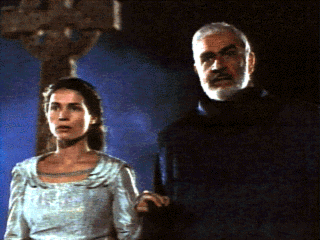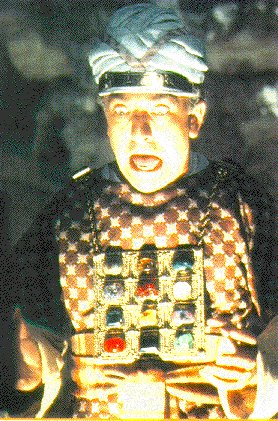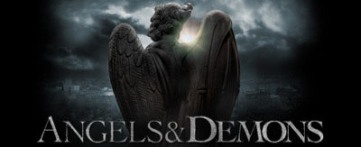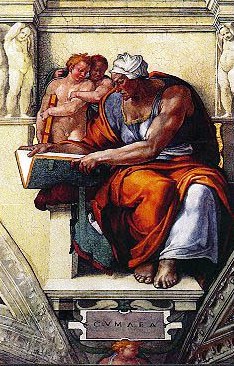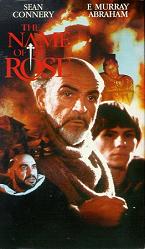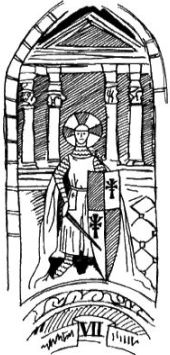|





Thought your bad hair days were the worst?!
Exoteric comment: Invisible forces abound in a metaphysical paradigm, therefore superficial symbolism, idiograms, and lexicons will serve no useful purpose when work relating to almost all mystical literature is required. For best results, know the answer before you ask the question.
Scriptor - (Latin) writer; writers would work in a scriptorium; the word scriptor is related to the verb scribo, to write.
Transcriptions - Ancient and Mediaeval Philosophers
Manly P. Hall found a wide variety of cryptogram styles during the course of his research into the topic of
written transcriptions. He wrote, "It would prove that many apparently verbose and rambling authors were wordy for the sake of concealing words. Ciphers are hidden in the most subtle manner: they may be concealed in the watermark of the paper upon which a book is printed; they may be bound into the covers of ancient books; they may be hidden under imperfect pagination; they may be extracted from the first letters of words or the first words of sentences; they may be artfully concealed in mathematical equations or in apparently unintelligible characters; they may be extracted from the jargon of clowns or revealed by heat as having been written in sympathetic ink; they may be word ciphers, letter ciphers, or apparently ambiguous statements whose meaning could be understood only by repeated careful readings; they may be discovered in the elaborately illuminated initial letters of early books or they may be revealed by a process of counting words or letters."
Adjustments are made short hand by most people correcting for time tables and other logistical considerations. These do not always get to the printed page so first time readers can become confused. For example, the astrological/astronomical math in determining the kerubs [archangel stars] beginning and closing zodiacal degrees:
The archangel stars:
These four stars seem to make an appearance in the Nicolas Cage thriller Knowing. In art they are often characterized as Horses, reflected both in the famed Four Horsemen of Apocalypse (Revelations 6), Chariot Horses in the Book of Zechariah, and the great white team that won the chariot race in Ben-Hur.
Transcription and translation errors are conceded in editions of The Greater and Lesser Keys (of Solomon). The precise names and words are unspecified permitting the blinds that metaphysical writers use so it is possible for them to catch neophytes in the sieve. Today there are techniques like 'remote viewing' that, like psychic fly paper, accomplish the same thing. -Sherlock Holmes [Sir Arthur Conan Doyle]
Original manuscripts turned to dust long ago. Christianity began its legal status after 300 AD. Prevalent religious themes of the day were reworded to allow the Christian players effective moves, once they re-positioned themselves on new turf. These ideas have been explored in many books that record myths and legends of the Piscean era, like the story of
The Cumaean Sibyl and Tarquinius Superbus, king of Rome [The Sibylline Books], Holy Blood, Holy Grail, The da Vinci Code [and Angels and Demons].
Common themes at that time were the Roman lion-headed god, Atlas and the hero cults associated with celestial movements during the year and in the aeons macrocosmic time table. Many metaphysical formulae was placed in 'safty deposit boxes' once the Christians began to persecute others the way they had been pursued by Rome. Such an example would be the symbolism Trump X The Wheel (Divine Providence) conceals the keys of the vision of Ezekiel. The Book of Revelations, the last book in the New Testament is filled out by such inclusions from an earlier period in history.
Legend has it Arthur lived during that time, may have been central in English history as a warlord-hero-god, agricultural god who became a warlord, and the object of a cult as were other heroes during that period in history. Mention is made of the historic Arthur's army connected with the descent into Annwn.
Traditional evidence of the Mithraic cult as also competitive with the Christian religion, up to around the 5th Century, ran parallel to these.
Merlin made a similar voyage in a similar ship or diving-bell, as did Alexander the Great, and indeed the latter story is mentioned by Taliesin. The allusion to "the brindled ox with his headband" is obviously the sacred beast which figured in all such mysteries, the Osirian and the Mithraic as well as the British, the White Bull of the Sun. The place-names which conclude most of the stanzas appear to have reference to various regions in Annwn."
This textbook classic could be the video script for the "MOST HIGH" visuals in 1998, for the hit single from the second CD during the Page and Plant reunion, WALKING INTO CLARKSDALE. Several of these compelling tunes are from traditional alchemical precepts. Perhaps the collection is deemed "too high" and above the level of the viewing audience in the eyes of VH1 and MTV producers. Regardless of complaints from LedHeads no one was listening to requests for this extraordinary video.
Regardless of the coveted award as Best Rock Performance at the Grammies, 'Most High' as video air time is a simple wish and a prayer for the huge Page and Plant audience.
It appears the market/opinion polls indicate the concentration and focus required for appreciation of this subject is outside the range of the modern viewer. Some people suggest the target age for the audience is the fourth grade level, that would definitely remove the 'Most High' video and any discussion of the topic of transcription verification off the TV and probably off list for most professors in the university spheres. It is mysterious that, with this obvious lack of interest in authentic language and gematria topic, "Intelligence" groups have claimed such an intricate knowledge of this very complex subject. Where could they have made the very detailed and in depth study required to claim they are without error in their opinions?
The way metaphysical information reveals itself through the entertainment and publication industry has always had an unusual twist, or a sting to it. This is true in Hollywood and in other mediums, and certainly in the music field when you can view an actual alchemical theme that is on tape for the public in a promotional effort but 4 or 5 times in an entire year, yet the song wins for Best Performance of a Rock Song during its whole year of playtime. It's a sign if the times!
This situation in particular seems typical, yet should be more public in the degree of protest since everyone knows of it. So as we enter the 'Age of Enlightenment' there are still omissions, blurred detail, and misstatements for the collective conscious to discover, set aright, and synthesize. Since we have the internet now, perhaps we can finally put this excuse for harassment of mystics, saints and the metaphysical community to rest. The harmony of nature we want nests in the heart and no one else knows what resides there other than The Absolute. When Thelema was purchased, all the walls were restored. Most of the original art forms revealed likeness of flowers, nature generally, and the type of surrealistic dreamscapes we would ascribe to the likes of Klee, Dali, and Miro. People were shocked but not in the way they had expected to be surprised. Many of the art forms were like those someone using non-dominant hand techniques (release of the inner child via spontaneous nature) would employ.
Someone, eventually, will educate the general public; till that day, Baphomet will continue to cause the type of trouble he is supposed to represent, not because his status is valid but more honestly as an excuse for those who dwell on negativity. For example, how many people know the number 666 is the Qaballistic value of Jesus Christ and of man, and of The Beast? Serious, thorough research and background for the overworked 666 seldom appears in print.
Joan of Arc was convicted of conversing with inhabitants of the infernal regions that do not exist. The political and religious pressures (there were three popes in Western Christianity and one of the Eastern Orthydox) typical of her time dominated her trial. Because Joan's whole village was loyal to the Pope in Rome her fate was sealed and there was no chance for her ransom.
History provides the tradition of capture and ransom of a general. Joan was the Supreme Commander of all military forces in France when she was put on trial, yet no offer to ransom her was ever made by supporters
of the Papacy at Avignon.
left, Sean Connery and Christian Slater as monks in, The Name of the Rose
Another type of example related to these confusing circumstances, culled from Manly P. Hall's FREEMASONRY OF THE ANCIENT EGYPTIANS (Philosophical Research Society, Inc., Los Angeles, California)
Notes from the Chapter about the Seventh Grade read as follows:
SEVENTH GRADE - PROPHET OR SAPHENATH PANCAH.
This grade was the last and most eminent. In it they gave a detailed and most complete explanation of all the Mysteries. The Astronomer could not obtain this degree, which established his aptitude in all the functions, public and politic, without the assent of the King and Demiurgos; and at the same time the general consent of the inner members of the Society.
The reception was followed by a public procession to which they gave the name of Pamylach (Oris circumcisio - circumcision of the tongue).
[This would seem to be a figurative expression, by which they wished to say that the Neophyte had acquired all knowledge which they could give him - his tongue was acute, and he was permitted to speak of all knowledge.]*
Problems may be tracked by way of the age old saying, "consider the source."
We have countless attempts on record to prove our continual effort to minimize misunderstanding. There are olde and modern versions of every lexicon about anything we can imagine that explain the progression of words in our dictionary and how they are evolving on a global level.
Note: Senatus Consulta - (Latin) recommendations made by the Senate that were similar to laws; the Roman assemblies would then act on the Senate's recommendations; the most powerful senatus consultum was called the senatus consultum ultimum that essentially could declare martial law, giving absolute power to the consuls; copies of senatus consulta were kept in the Temple of Ceres beginning in 449 BCE.
Congressional Record
more of Senator Specter's closing comment below, in case above link is closed.
Early heraldry - Deva of Raglan Castle: Christ in heraldry 140 A.D.
FYI (Additional hero noted) Thomas Paine in a pamphlet mentions his research into the origin of Freemasonry re habits and practices of the Druids. Other writers contend that Freemasonry had its origin among the rites practiced in the Pyramids. It would appear that the presence of Freemasons' symbolism, in at least post-flood documents, points to a common origin of the symbols, doctrine, and their interpretation.
PRS Society Gallery Illustrated Delphinian Tripod and The Bembine Tablet & Hierophant.
Tolkien: Gandalf carefully reviews the archives of Minas Tirith - is Stormbringer's examination of Isildur's account an allusion to the akasha records?
Trump XIII Grim Reaper, Metamorphosis, Death
Trump XIII is one of the few Major Arcana cards of the Tarot Deck that is often translated gracefully, informatively, and accurately by most scholars. In many cases, the reason for predictable unpleasantness on the topic of universal vulnerability probably stems from the visual design, and noun/verb relationships drawn as human and other images represented by the artist.
Excellent reading on the subject of providing an honest, empathic interpretation with regard to Trump III can be found in the book by Francis Douce, The Dance of Death, Illustrator: Hans Holbein. The subtitle reads:
Exhibited in Elegant Engravings on Wood with a Dissertation on the Several Representations of that Subject but More Particularly on Those Ascribed to Macaber and Hans Holbein
for reference and illustrations go
The Dance of Death
Aside from Trump XIII, several single prints connected with the Dance of Death are still with us. One well preserved ascetic example is the well-known and beautiful engraving by Albert Durer, of a knight, preceded by Death, and followed by a demon.
Go to pages 32 and 33 of Douce's text for background about the earliest versions. The following is a general idea of what is there.
The earliest ancient paintings of the Macaber Dance, of which the date has been satisfactorily defined, was that in the church-yard of the Innocents at Paris, and which has been already mentioned as having been painted in 1434.
In the cloister of the church of the Sainte Chapelle at Dijon the Macaber Dance was painted by an artist whose name was Masonçelle. It had disappeared and was forgotten a long time ago, but its existence was discovered in the archives of the department by Mons. Boudot, an ardent investigator of the manners and customs of the middle ages. The date ascribed to this painting is 1436. The above church was destroyed in the revolution, previously to which another Macaber Dance existed in the church of Notre Dame in the above city. This was not a painting on the walls, but a piece of white embroidery on a black piece of stuff about two feet in height and very long. It was placed over the stalls in the choir on grand funeral ceremonies, and was also carried off with the other church moveables, in the abovementioned revolution. Similar exhibitions, no doubt, prevailed in other places.
There is a curious explanation for the origin of the modern meaning for the word, 'macabre,' also described in the character sketches within the art itself.
The subject of the picture is the hideous figure of Death mowing down with his scythe all ranks and conditions of men. Vasari adds that Orgagna had crowded his picture with a great many inscriptions, most of which were obliterated by time. From one of them which he has preserved in his work, as addressed to some aged cripples, it should appear that, as in the Macaber Dance, Death apostrophizes the several characters. Baldinucci, in his account of Orgagna, mentions this painting and the story of the Three Kings and Saint Macarius. Morona, likewise, in his Pisa illustrata, adopts the name of Macarius when describing the same subject. The figures in the picture are all portraits, and their names may be seen, but with some variation as to description, both in Vasari and Morona.
Now the story of Les trois mors et les trois vifs, was prefixed to the painting of the Macaber Dance in the church-yard of the Innocents at Paris, and had also been sculptured over the portal of the church, by order of the Duke de Berry in 1408. It is found in numerous manuscript copies of Horæ and other service books prefixed to the burial office. All the printed editions of the Macaber Dance contain it, but with some variation, the figure of Saint Macarius in his cell not being always introduced. It occurs in many of the printed service books, and in some of our own for the use of Salisbury.
The earliest wood engraving of it is in the black book of the “15 signa Judicii,” where two of the young men are running away to avoid the three deaths, or skeletons, one of whom is rising from a grave. It is copied in Bibliotheca Spenceriana, vol. i. p. xxx.
From the preceding statement then there is every reason to infer that the name of Macaber, so frequently, and without authority, applied to an unknown German poet, really belongs to the Saint, and that his name has undergone a slight and obvious corruption. The word Macabre is found only in French authorities, and the Saint’s name, which, in the modern orthography of that language, is Macaire, would, in many ancient manuscripts, be written Macabre instead of Macaure, the letter b being substituted for that of u from the caprice, ignorance, or carelessness of the transcribers.
As no German copy of the verses describing the painting can, with any degree of certainty, be regarded as the original, we must substitute the Latin text, which may, perhaps, have an equal claim to originality. The author, at the beginning, has an address to the spectators, in which he tells them that the painting is called the Dance of Macaber.
There is an end, therefore, of the name of Macaber, as the author of the verses, leaving it only as applicable to the painting, and almost, if not altogether confirmatory of the preceding conjecture. The French version, from which Lydgate made his translation, nearly agrees with the Latin. Lydgate, however, in the above address, has thought fit to use the word
translator instead of author, but this is of no moment, any more than the words Machabrée the Doctour, which, not being in the French text, are most likely an interpolation. He likewise calls the work the daunce; and it may, once for all, be remarked, that scarcely any two versions of it will be found to correspond in all respects, every new editor assuming fresh liberties, according to the usual practice in former times.
Senator Arlen Specter, Closing Argument
Congressional Record
Mr. SPECTER. Madam President, this is not a farewell address but, rather, a closing argument to a jury of my colleagues and the American people outlining my views on how the Senate and, with it, the Federal Government arrived at its current condition of partisan gridlock, and my suggestions on where we go from here on that pressing problem and the key issues of national and international importance.
To make a final floor statement is a challenge. The Washington Post noted the poor attendance at my colleagues' farewell speeches earlier this month. That is really not surprising since there is hardly anyone ever on the Senate floor. The days of lively debate with many Members on the floor are long gone. Abuse of the Senate rules has pretty much stripped Senators of the right to offer amendments. The modern filibuster requires only a threat and no talking. So the Senate's activity for more than a decade has been the virtual continuous drone of a quorum call. But that is not the way it was when Senator Chris Dodd and I were privileged to enter the world's greatest deliberative body 30 years ago. Senators on both sides of the aisle engaged in collegial debate and found ways to find common ground on the Nation's pressing problems.
When I attended my first Republican moderates luncheon, I met Mark Hatfield, John Chafee, Ted Stevens, Mac Mathias, Bob Stafford, Bob Packwood, Chuck Percy, Bill Cohen, Warren Rudman, Alan Simpson, Jack Danforth, John Warner, Nancy Kassebaum, Slade Gorton, and I found my colleague John Heinz there. That is a far cry from later years when the moderates could fit into a telephone booth.
On the other side of the aisle, I found many Democratic Senators willing to move to the center to craft legislation--Scoop Jackson, Joe Biden, Dan Inouye, Lloyd Bentsen, Fritz Hollings, Pat Leahy, Dale Bumpers, David Boren, Russell Long, Pat Moynihan, George Mitchell, Sam Nunn, Gary Hart, Bill Bradley, and others. They were carrying on the Senate's glorious tradition.
The Senate's deliberate cerebral procedures have served our country well. The Senate stood tall in 1805 in acquitting Supreme Court Justice Samuel Chase in impeachment proceedings and thus preserved the independence of the Federal judiciary. The Senate stood tall in 1868 to acquit President Andrew Johnson in impeachment proceedings, and that preserved the power of the Presidency. Repeatedly in our 223-year history, the Senate has cooled the passions of the moment to preserve the institutions embodied in our Constitution which have made the United States the envy of the world.
It has been a great privilege to have had a voice for the last 30 years in the great decisions of our day: how we allocate our resources among economic development, national defense, education, environmental protection, and NIH funding; the Senate's role in foreign policy as we exercise it now on the START treaty; the protection of civil rights, as we demonstrated last Saturday, eliminating don't ask, don't tell; balancing crime control and defendants' rights; and how we have maintained the quality of the Federal judiciary, not only the high-profile 14 Supreme Court nominations I have participated in but the 112 Pennsylvanians who have been confirmed during my tenure on the Federal district courts or the Third Circuit.
On the national scene, top issues are the deficit and the national debt. The deficit commission has made a start. When raising the debt limit comes up next year, that will present an occasion to pressure all parties to come to terms on future taxes and expenditures, to realistically deal with these issues.
The Next Congress should try to stop the Supreme Court from further eroding the constitutional mandate of separation of powers. The Supreme Court has been eating Congress's lunch by invalidating legislation with judicial activism after nominees commit under oath in confirmation proceedings to respect congressional factfinding and precedents. That is stare decisis. The recent decision in Citizens United is illustrative. Ignoring a massive congressional record and reversing recent decisions, Chief Justice Roberts and Justice Alito repudiated their confirmation testimony given under oath and provided the key votes to permit corporations and unions to secretly pay for political advertising, thus effectively undermining the basic democratic principle of the power of one person, one vote. Chief Justice Roberts promised to just call balls and strikes. Then he moved the bases.
Congress's response is necessarily limited in recognition of the importance of judicial independence as the foundation of the rule of law, but Congress could at least require televising the Court proceedings to provide some transparency to inform the public about what the Court is doing since it has the final word on the cutting issues of the day. Brandeis was right when he said that sunlight is the best disinfectant.
The Court does follow the election returns, and the Court does judicially notice societal values as expressed by public opinion. Polls show that 85 percent of the American people favor televising the Court when told that a citizen can only attend an oral argument for 3 minutes in a chamber holding only 300 people. Great Britain, Canada, and State supreme courts permit television.
Congress has the authority to legislate on this subject, just as Congress decides other administrative matters such as what cases the Court must hear, time limits for decisions, number of Justices, the day the Court convenes, and the number required for a quorum. While television cannot provide a definitive answer, it could be significant and may be the most that can be done consistent with life tenure and judicial independence.
Additionally, I urge Congress to substantially increase funding for the National Institutes of Health. When NIH funding was increased from $12 to $30 billion annually and $10 billion added to the stimulus package, significant advances were made on medical research. It is scandalous--absolutely scandalous--that a nation with our wealth and research capabilities has not done more. Forty years ago, the President of the United States declared war on cancer. Had that war been pursued with the diligence of other wars, most forms of cancer might have been conquered.
I also urge colleagues to increase their activity on foreign travel. Regrettably, we have earned the title of ugly Americans by not treating other nations with proper respect and dignity.
My experience on congressional delegations to China, Russia, India, NATO, Jerusalem, Damascus, Bagdad, Kabul, and elsewhere provided an opportunity for eyeball-to-eyeball discussions with world leaders about our values, our expectations, and our willingness to engage in constructive dialog. Since 1984, I have visited Syria almost every year, and my extensive conversations with Hafiz al-Assad and Bashar al-Assad have convinced me there is a realistic opportunity for a peace treaty between Israel and Syria, if encouraged by vigorous U.S. diplomacy. Similar meetings I have been privileged to have with Muammar Qadhafi, Yasser Arafat, Fidel Castro, Saddam Hussein, and Hugo Chavez have persuaded me that candid, respectful dialog with our toughest adversaries can do much to improve relations among nations.
Now I will shift gears. In my view, a principal reason for the historic stature of the U.S. Senate has been the ability of any Senator to offer virtually any amendment at any time. This Senate Chamber provides the forum for unlimited debate with a potential to acquaint the people of America and the world with innovative proposals on public policy and then have a vote on the issue. Regrettably, that has changed in recent years because of abuse of the Senate rules by both parties.
The Senate rules allow the majority leader, through the right of his first recognition, to offer a series of amendments to prevent any other Senator from offering an amendment.
That had been done infrequently up until about a decade ago and lately has become a common practice, and, again, by both parties.
By precluding other Senators from offering amendments, the majority leader protects his party colleagues from taking tough votes. Never mind that we were sent here and are paid to make tough votes. The inevitable and understandable consequence of that practice has been the filibuster. If a Senator cannot offer an amendment, why vote to cut off debate and go to final passage? Senators were willing--and are willing--to accept the will of the majority in rejecting their amendments but unwilling to accept being railroaded to concluding a bill without being provided an opportunity to modify it. That practice has led to an indignant, determined minority to filibuster and to deny 60 votes necessary to cut off debate. Two years ago on this Senate floor, I called the practice tyrannical.
The decade from 1995 to 2005 saw the nominees of President Clinton and President Bush stymied by the refusal of the other party to have a hearing or floor vote on many judicial and executive nominees. Then, in 2005, serious consideration was given by the Republican caucus to changing the longstanding Senate rule by invoking the so-called nuclear or constitutional option. The plan called for Vice President Cheney to rule that 51 votes were sufficient to impose cloture for confirmation of a judge or executive nominee. His ruling, then to be challenged by Democrats, would be upheld by the traditional 51 votes to uphold the Chair's ruling.
As I argued on the Senate floor at that time, if Democratic Senators had voted their consciences without regard to party loyalty, most filibusters would have failed. Similarly, I argued that had Republican Senators voted their consciences without regard to party loyalty, there would not have been 51 of the 55 Republican Senators to support the nuclear option.
The majority leader then scheduled the critical vote on May 25, 2005. The outcome of that vote was uncertain, with key Republicans undeclared. The showdown was averted the night before by a compromise by the so-called Gang of 14. Some nominees were approved, some rejected, and a new standard was established to eliminate filibusters unless there were extraordinary circumstances, with each Senator to decide if that standard had been met. Regrettably, again, that standard has not been followed as those filibusters have continued up to today. Again, the fault rests with both parties.
There is a way out of this procedural gridlock by changing the rule on the power of the majority leader to exclude other Senators' amendments. I proposed such a rule change in the 110th and 111th Congresses. I would retain the 60-vote requirement for cloture on legislation, with a condition that Senators would have to have a talking filibuster, not merely presenting a notice of intent to filibuster. By allowing Senators to offer amendments and a requirement for debate, not just notice, I think filibusters could be effectively managed, as they had been in the past, and still retain, where necessary, the opportunity to have adequate debate on controversial issues.
I would change the rule to cut off debate on judicial and executive branch nominees to 51 votes, as I formally proposed in the 109th Congress. Important positions are left open for months, and the Senate agenda today is filled with unacted-upon judicial and executive nominees, and many of those judicial nominees are in areas where there is an emergency backlog. Since Judge Bork and Justice Thomas did not provoke filibusters, I think the Senate can do without them on judges and executive officeholders. There is a sufficient safeguard of the public interest by requiring a simple majority on an up-down vote. I would also change the rule requiring 30 hours of postcloture debate and the rule allowing the secret hold, which requires cloture to bring the matter to the floor. Requiring a Senator to disclose his or her hold to the light of day would greatly curtail this abuse.
While political gridlock has been facilitated by the Senate rules, I am sorry to say partisanship has been increased greatly by other factors. Senators have gone into other States to campaign against incumbents of the other party. Senators have even opposed their own party colleagues in primary challenges. That conduct was beyond contemplation in the Senate I joined 30 years ago. Collegiality can obviously not be maintained when negotiating with someone simultaneously out to defeat you, especially within your own party.
In some quarters, ``compromise'' has become a dirty word. Senators insist on ideological purity as a precondition. Senator Margaret Chase Smith of Maine had it right when she said we need to distinguish between the compromise of principle and the principle of compromise. This great body itself was created by the so-called Great Compromise, in which the Framers decreed that States would be represented equally in the Senate and proportionate to their populations in the House. As Senate Historian Richard Baker noted: ``Without that compromise, there would likely have been no Constitution, no Senate, and no United States as we know it today.''
Politics is no longer the art of the possible when Senators are intransigent in their positions. Polarization of the political parties has followed. President Reagan's ``big tent'' has frequently been abandoned by the Republican Party. A single vote out of thousands cast can cost an incumbent his seat. Senator Bob Bennett was rejected by the far right in his Utah primary because of his vote for TARP. It did not matter that Vice President Cheney had pleaded with the Republican caucus to support TARP or President Bush would become a modern Herbert Hoover. It did not matter that 24 other Republican Senators, besides Bob Bennett, out of the 49 Republican Senators voted for TARP. Senator Bennett's 93 percent conservative rating was insufficient.
Senator Lisa Murkowski lost her primary in Alaska. Congressman Mike Castle was rejected in Delaware's Republican primary in favor of a candidate who thought it necessary to defend herself as not being a witch. Republican Senators contributed to the primary defeats of Bennett, Murkowski, and Castle. Eating or defeating your own is a form of sophisticated cannibalism. Similarly, on the other side of the aisle, Senator Joe Lieberman, a great Senator, could not win his Democratic primary.
The spectacular reelection of Senator Lisa Murkowski on a write-in vote in the Alaska general election and the defeat of other Tea Party candidates in the 2010 general elections may show the way to counter right-wing extremists. Arguably, Republicans left three seats on the table in 2010--beyond Delaware, Nevada, and perhaps Colorado--because of unacceptable general election candidates. By bouncing back and winning, Senator Murkowski demonstrated that a moderate centrist can win by informing and arousing the general electorate. Her victory proves that America still wants to be and can be governed by the center.
Repeatedly, senior Republican Senators have recently abandoned long-held positions out of fear of losing their seats over a single vote or because of party discipline. With 59 votes for cloture on this side of the aisle, not a single Republican would provide the 60th vote for many important legislative initiatives, such as identifying campaign contributors to stop secret contributions.
Notwithstanding the perils, it is my hope more Senators will return to independence in voting and crossing party lines evident 30 years ago. President Kennedy's ``Profiles in Courage'' shows the way. Sometimes a party does ask too much. The model for an elected official's independence in a representative democracy has never been stated more accurately, in my opinion, than it was in 1774 by Edmund Burke, in the British House of Commons, when he said: `` ..... his [the elected representative's] unbiased opinion, his mature judgment, his enlightened conscience ..... [including his vote] ought not to be sacrificed to you, to any man or any set of men living.''
But, above all, we need civility. Steve and Cokie Roberts, distinguished journalists, put it well in a recent column, saying:
Civility is more than good manners. ..... Civility is a state of mind. It reflects respect for your opponents and for the institutions you serve together. ..... This polarization will make civility in the next Congress more difficult--and more necessary--than ever.
A closing speech has an inevitable aspect of nostalgia. An extraordinary experience for me is coming to an end. But my dominant feeling is pride in the great privilege to be a part of this very unique body with colleagues who are such outstanding public servants. I have written and will write elsewhere about my tenure here, so I do not say farewell to my continuing involvement in public policy, which I will pursue in a different venue. Because of the great traditions of this body and because of its historic resilience, I leave with great optimism for the future of our country, a great optimism for the continuing vital role of the Senate in the governance of our democracy.
I thank my colleagues for listening. Flash From The Past
“…. We’ve got General De Gaulle making a fresh start with a new President of the United States [JFK], so let’s get a new face in the interpreter’s chair, too.” The State Department men heaved a collective sigh of relief, and expressed fervent thanks to God, or words to that effect. It seems that the Army’s favorite interpreter had been doing all of the talking at Eisenhower’s meetings with De Gaulle, while Ike and De Gaulle sat and listened to him. “Eisenhower would make a brief remark,” one of the embassy officials said, “and then this fellow would turn to De Gaulle and talk to him in French for twenty minutes. Then De Gaulle would say something in French to the interpreter, and the interpreter would go into another long dissertation in French. The whole conversation would be between De Gaulle and the interpreter, with Eisenhower looking out the window.” We heard later that De Gaulle was very amused when he saw that Kennedy had engaged a new interpreter.”
-Kenneth P. O’Donnell and David F. Powers, with Joe McCarthy

|

